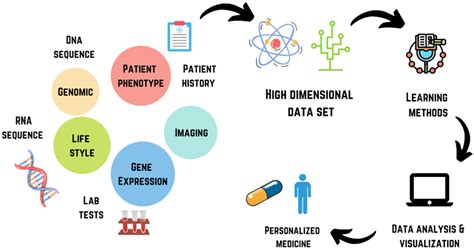Texas has become a hub for biomedical research and innovation, attracting top scientists, clinicians, and entrepreneurs from around the world. The state's unique blend of academic institutions, research centers, and industry partners has created a vibrant ecosystem that fosters collaboration and drives medical breakthroughs. In this article, we will explore some of the most exciting Texas biomedical applications, highlighting the innovations that are revolutionizing medical research and transforming patient care.
Advances in Cancer Research
Texas is home to several world-renowned cancer research institutions, including the University of Texas MD Anderson Cancer Center and the UT Southwestern Medical Center. These institutions are leading the charge in cancer research, developing innovative treatments and therapies that are improving patient outcomes.
One of the most promising areas of cancer research is immunotherapy, which harnesses the power of the immune system to fight cancer. Texas researchers are at the forefront of this field, developing new immunotherapies that have shown significant promise in clinical trials.

Regenerative Medicine
Regenerative medicine is another area where Texas researchers are making significant strides. This field focuses on developing therapies that can repair or replace damaged tissues and organs, offering new hope for patients with debilitating diseases.
One of the most exciting developments in regenerative medicine is the use of stem cells to repair damaged heart tissue. Researchers at the Texas Heart Institute are using stem cells to develop new therapies for heart failure, with promising results in early clinical trials.

Gene Editing
Gene editing is a powerful tool that allows researchers to edit genes with unprecedented precision. This technology has the potential to revolutionize the treatment of genetic diseases, and Texas researchers are at the forefront of this field.
One of the most promising applications of gene editing is the treatment of sickle cell disease, a devastating genetic disorder that affects millions of people worldwide. Researchers at the Baylor College of Medicine are using gene editing to develop a new therapy for sickle cell disease, with promising results in early clinical trials.

Personalized Medicine
Personalized medicine is an approach to healthcare that tailors treatment to an individual's unique genetic profile. This approach has the potential to revolutionize healthcare, and Texas researchers are leading the charge.
One of the most promising applications of personalized medicine is the use of genetic testing to develop targeted therapies for cancer. Researchers at the University of Texas MD Anderson Cancer Center are using genetic testing to develop new therapies that are tailored to an individual's unique genetic profile.

Neurological Disorders
Neurological disorders such as Alzheimer's disease, Parkinson's disease, and stroke are some of the most devastating diseases affecting millions of people worldwide. Texas researchers are working tirelessly to develop new therapies and treatments for these diseases.
One of the most promising areas of research is the use of stem cells to repair damaged brain tissue. Researchers at the UT Southwestern Medical Center are using stem cells to develop new therapies for Parkinson's disease, with promising results in early clinical trials.

Conclusion
Texas is a hub for biomedical research and innovation, with world-renowned institutions, talented researchers, and a thriving industry. The state's unique blend of academic institutions, research centers, and industry partners has created a vibrant ecosystem that fosters collaboration and drives medical breakthroughs.
As we have seen, Texas researchers are making significant strides in a wide range of areas, from cancer research to regenerative medicine, gene editing, personalized medicine, and neurological disorders. These innovations have the potential to transform patient care and improve outcomes for millions of people worldwide.
We encourage readers to learn more about the exciting work being done in Texas and to explore the many resources available to support biomedical research and innovation in the state.
Gallery of Texas Biomedical Applications






FAQs
What is biomedical research?
+Biomedical research is the scientific study of the human body and its functions, with the goal of developing new treatments and therapies for diseases and disorders.
What are some examples of biomedical applications?
+Examples of biomedical applications include cancer research, regenerative medicine, gene editing, personalized medicine, and neurological disorders.
Why is Texas a hub for biomedical research?
+Texas is a hub for biomedical research due to its unique blend of academic institutions, research centers, and industry partners, which creates a vibrant ecosystem that fosters collaboration and drives medical breakthroughs.
